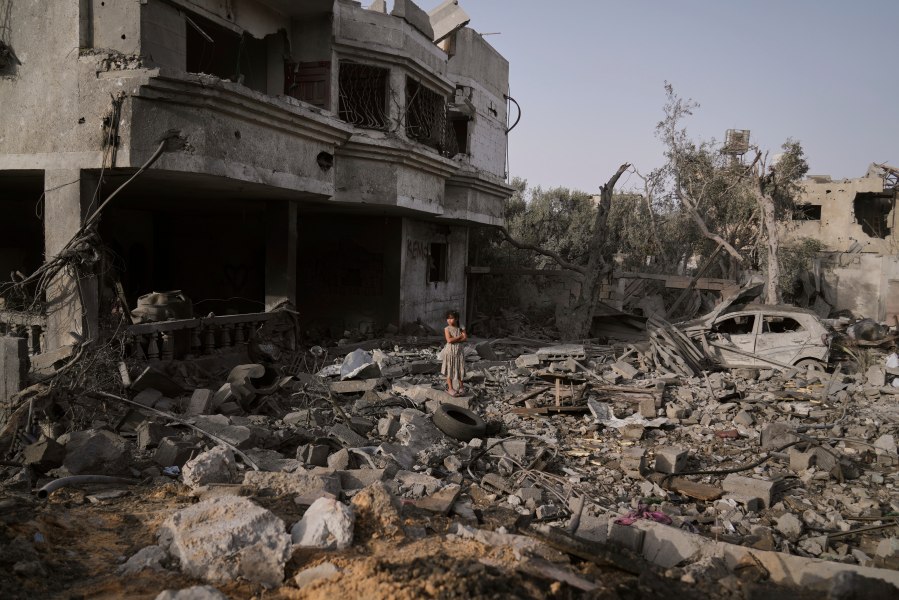
CAIRO (AP) — In a significant development, Hamas indicated on Wednesday its openness to a ceasefire agreement with Israel. However, the group stopped short of accepting a U.S.-backed proposal announced by President Donald Trump, maintaining its firm stance that any deal must lead to an end to the ongoing war in Gaza.
President Trump revealed on Tuesday that Israel had agreed to a 60-day ceasefire in Gaza, urging Hamas to accept the terms before the situation deteriorates further. The U.S. administration has been ramping up pressure on both the Israeli government and Hamas to negotiate a ceasefire and hostage exchange, aiming to bring an end to the prolonged conflict. Trump stated that the 60-day period would be used to work towards ending the war, a condition Israel has rejected until Hamas is defeated.
Hamas’ response, which reiterated its demand for the war’s conclusion, casts doubt on whether the latest offer could lead to an actual cessation of hostilities. Hamas official Taher al-Nunu emphasized the group’s readiness to reach an agreement, stating, “Hamas is ready to accept any initiative that clearly leads to the complete end to the war.”
Ceasefire Talks and Ongoing Disagreements
A Hamas delegation is scheduled to meet with Egyptian and Qatari mediators in Cairo to discuss the proposal, according to an Egyptian official who requested anonymity. Throughout the nearly 21-month-long conflict, ceasefire negotiations between Israel and Hamas have consistently stumbled over the terms for ending the war.
Hamas has expressed willingness to release the remaining 50 hostages, less than half of whom are believed to be alive, in exchange for a complete Israeli withdrawal from Gaza and an end to the war. Conversely, Israel insists on Hamas’ surrender, disarmament, and exile as prerequisites for ending the conflict, conditions that Hamas refuses to accept.
An unnamed Israeli official disclosed that the latest proposal includes a 60-day ceasefire, partial Israeli withdrawal from Gaza, and increased humanitarian aid to the territory. The mediators and the U.S. would provide assurances about future talks to end the war, but Israel is not committing to this as part of the current proposal.
International Reactions and Diplomatic Efforts
Israel has yet to publicly comment on Trump’s announcement. President Trump is set to host Israeli Prime Minister Benjamin Netanyahu for discussions at the White House, following recent talks between senior Netanyahu adviser Ron Dermer and top U.S. officials regarding Gaza, Iran, and other regional issues.
Trump took to social media, stating, “Israel has agreed to the necessary conditions to finalize the 60 Day CEASEFIRE, during which time we will work with all parties to end the War.” He added a warning, “I hope, for the good of the Middle East, that Hamas takes this Deal, because it will not get better — IT WILL ONLY GET WORSE.”
Humanitarian Crisis and Historical Context
Trump’s warning might be met with skepticism by Hamas. Even before the expiration of the war’s longest ceasefire in March, Trump has issued dramatic ultimatums to pressure Hamas into agreeing to longer pauses in fighting, aiming for more hostage releases and increased aid to Gaza’s civilians.
Despite the challenges, Trump views the current moment as a potential turning point in the brutal conflict that has claimed over 56,000 lives in the Palestinian territory. The Gaza Health Ministry reports that more than half of the deceased are women and children, though it does not differentiate between civilians and combatants.
The war, which began on October 7, 2023, when Hamas-led militants attacked southern Israel, killing 1,200 people and taking approximately 250 hostages, has left Gaza in ruins. The coastal Palestinian territory’s infrastructure is devastated, with over 90% of its 2.3 million population displaced, often multiple times, leading to a severe humanitarian crisis.
As the international community watches closely, the upcoming diplomatic engagements and negotiations may determine the next phase of this protracted conflict. The world awaits to see if the current ceasefire proposal can pave the way for lasting peace in the region.






